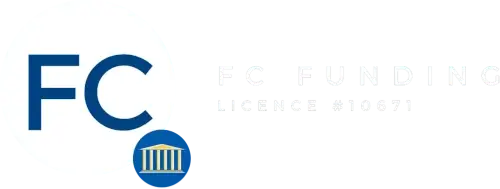Is it better to invest your surplus income or focus on paying down your mortgage faster?
Canadian households are carrying a lot of debt these days. And while realizing the dream of becoming a homeowner is wonderful, the mortgage that comes along with it is often a source of stress. Young homeowners often dream of the days when they will be mortgage free. But, is it really better to pay down your mortgage when you could use that money to invest?
Paying off high-interest debts, like credit cards, before investing is generally recommended. Interest rates on these debts are usually considerably higher than investment returns. These debts can sometimes be eliminated through consolidation. The question of whether to pay off low-interest debt, such as a mortgage, is a little less cut-and-dry.


Back in the good old days – only 2 or 3 years ago – when mortgage rates were sub-2%, the answer to this question seemed pretty clear. Why pay down a debt that’s costing you only 2% when you could invest and enjoy annual rates or return of 6% + AND compound interest? The decision to invest or pay down your mortgage was a no-brainer. Expected returns on investments are higher than the interest rate on your debt, therefore you to earn more money in the long run by investing. Now that mortgage rates are hovering in the 6 and 7 percent range, the answer is a little murkier.
Let’s assume you have an extra $300 each month to allocate either towards debt repayment or investments. If you have a $450,000 mortgage with a 25-year amortization and an interest rate of 5.5%, adding $300/month to your payment will save you $79,638 in interest. Not only that, but your mortgage will be paid off 4 years and 7 months earlier.
However, you could choose to take that same $300/month and invest it in an index fund that tracks the S&P 500 Index. The S&P Index has had an average rate of return of 9.9% over the last 30 years. For the sake of being conservative, lets assume a rate of return of 8% and that all dividends are being reinvested. By the end of the same 20.5 years that it would take to pay off your mortgage, you will have amassed a savings of $180,378.70. Of that, $106.578.70 would be interest. At this time, you would have $134,072.21 left on your mortgage which you could pay off in full and still have $46,306.49 remaining is savings.

From a purely numbers perspective, investing is generally the best choice. However, like most decisions, there are other factors to consider. So, lets look at the pros and cons of both choices.
Paying Down Your Mortgage
Pros
- mortgage paid off faster, meaning any risk of defaulting and potentially losing your home due to non-payment is eliminated sooner
- save thousands of dollars on interest
- decreased stress; studies show that carrying debt increases stress as well as strain on relationships
- the predictability of the benefits of paying down your mortgage make it the safer option; you always know exactly how much you are saving by making additional payments whereas with investing, the returns are dependant upon the performance of the market
Cons
- results in a decreased net-worth in the long-run as compared to focusing on investing
- property equity can be accessed but this takes time to accomplish and there are costs involved in doing so (legal fees and appraisals, for example), in addition, refinancing often comes with higher interest rates than those you would enjoy on a mortgage that has never been refinanced
- there may be penalties involved in paying off your mortgage early that will eat into the savings; many mortgages allow you to repay 15 or 20% of the originally borrowed amount in a calendar year before incurring penalties however some mortgages may allow little to no pre-payment of the principal
Investing
Pros
- increased net-worth as compared to paying down mortgage
- liquid assets are easily available and can generally be accessed fairly quickly in the event of an emergency that requires the withdrawal of funds
- can help to decrease your income tax obligations if invested in an RRSP
Cons
- investing is not without risk and fluctuations in the market can cause stress
- the benefits of investing as compared to paying down your mortgage become less significant as you get further into your amortization; because interest on mortgages is front-loaded and a considerably higher amount of your payment is going to interest at the beginning of your amortization, being aggressive with your mortgage repayment saves more money when your mortgage is new (which is when borrowers typically have less disposable income)
- there may be tax implications upon withdrawing your savings (depending on the type of account you invest within) which may eat into some of the additional net-worth that is amassed through investing
Ultimately, the decision to invest or pay down your mortgage should be based on your financial goals and risk tolerance. In today’s market, a half and half approach may be something to consider. By putting an extra $150/month to your mortgage and investing $150/month, you can enjoy the best of both worlds.
Make sure you speak with a licenced financial planner to discuss your investment options and whether your time horizon is sufficiently long enough to mitigate the risks of investing in the market.



